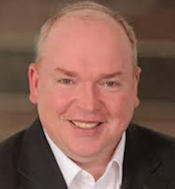 |
| Keri Toomey |
This summer, an announcement from luxury car brand BMW was met with the following headlines: “doomed to fail,” “welcome to hell” and “subscription nightmare.”
What sparked this visceral backlash? Heated seats cost $18 per month to unlock. BMW is the latest company to explore the concept of Everything-as-a-Service (or XaaS). While it can generate solid, predictable revenue, many consumers understandably feel that when everything is actually a service, nothing is. Or, put another way, when you suddenly have to pay separately for a feature that was free or included before—in the name of personalization—it’s a pass. It’s giving carry-on bag fee vibes.
While far from a luxury car brand, professional services firms are facing similar business model decisions that have broad marketing implications. Companies whose intellectual property and go-to-market strategy rely on talent that plugs in and out—or walks in and out of the building—every day are dealing with rising costs and a competitive talent market. They’re increasingly looking to shore up and diversify revenue streams through productized offerings that are repeatable and automatable, from process automation to data analytics to remote monitoring.
| This article is featured in O'Dwyer's Aug. Financial PR/IR & Professional Services PR Magazine (view PDF version) |
Enter Professional Services as a Service. As PSaaS begins to take shape, professional services firms are inching closer and closer to becoming true technology companies. Here are a few key considerations to ensure marketing evolves alongside the model.
Product vs. perspective
Professional services firms have been going to market by ideas for decades. It makes for some of the most challenging and creative work for marketers and thought leaders, and the best ideas win. While there’s growing interest in “knowledge as a service,” many as-a-service offerings cannot use longstanding professional services firm differentiators. A “senior-led” approach isn’t going to win against tangible value and outcomes. Professional services companies are going to need to get smarter and clearer on promoting tangible benefits—dollars and time saved, dollar value added—and not only at the end of the sales process but at the beginning as well.
Think about the buyer experience with a new TV. If you search for a 50-inch TV on Amazon and click on one product to see more, Amazon will show you a list of comparable products and which features they do or don’t have to help inform your decision. Professional services buyers, on the other hand, have to dig through long proposals from different firms to compare cost and benefits information.
Going forward, more of that information is going to need to be readily accessible on a site or portal. Transparency and simplicity will be key. It’s one reason professional services firms are hiring more professionals with a product marketing background.
Perspective-driven marketing is far from dead; it just needs to be supplemented with smart product marketing to serve a SaaS model.
Getting closer to the customer
One area of marketing that tech companies tend to do well is getting customer input and feedback in a scientific way. In one typical day, I gave Uber Eats feedback on a customer service response for a missed item, Google learned more about my interests in raku pottery and Peloton noticed me taking my first boxing class. That’s a lot of intel. On the other hand, professional services communications are too often starved for end-customer input.
There’s a clear reason why: It’s easier to engage and get feedback from an audience of consumers than from an overscheduled, executive-level decision maker. However, if the future will include more productized offerings, professional services firms are going to have to solve this issue. Any investment in a new capability comes with risk, but in a SaaS offering, the feedback loop has to be near constant in order to iterate and ensure ongoing ROI to the customer.
An annual client survey won’t cut it. A strong customer relationship management system is a good start, but it has to go beyond tracking interactions and email opens. Professional services require more qualitative feedback too.
Matrix vs. micro approach
Large-scale, matrixed professional services firms with broad services remind me of what we call a “platform” brand in the tech industry. It’s an elegant way to describe the concept of everything but the kitchen sink—you name it, we do it (or sell it).
Compare this approach to specialist consulting firms or the equivalent of “point solutions” in the tech industry. It’s like the difference between Target (generalist) vs. Total Wine (specialist).
SaaS offerings can help all categories of professional services firms grow, but it’s critical to stay close to your core mission. Total Wine’s customers might be open to a subscription-based wine selection service but would likely be skeptical about a new subscription-based pet food service, right?
Specialist firms may need to do some early education groundwork to demonstrate their PSaaS offering use cases and value and how they connect to the firm’s overall purpose. Large matrixed firms may need to add in layers of industry customization or bundle SaaS products to deliver the big ticket results their customers have grown to expect.
Whether you’re a large- or small-scale professional services firm, the implications for marketing SaaS offerings are similar: connect the new product to your overarching value proposition, then meet your buyer where they are and educate them as needed. Keep in mind that a sharp demo may be more effective than a deskside briefing with a reporter, and a paid campaign will likely generate more leads than a flashy podium.
All of this to say, professional services firms’ typical playbook of marketing tactics will need to adapt to meet objectives.
The goal of productizing professional services is not to usher in the era of “microtransaction hell,” but to offer new value to clients in areas of need. That goal is core to professional services firms’ DNA and soon, PSaaS will be too.
***
Keri Toomey is a Senior Vice President and Head of the Professional Services practice at The Bliss Group. The Bliss Group’s Professional Services practice ranks in the top 10 by O’Dwyers.


 Jones Lang LaSalle, the $19.4B real estate and investment firm, has hired Laura Vallis as head of communications.
Jones Lang LaSalle, the $19.4B real estate and investment firm, has hired Laura Vallis as head of communications. Ken Kerrigan, a 20-year veteran of Weber Shandwick and Ernst & Young, has joined The Bliss Group as senior VP and co-head of its professional services group.
Ken Kerrigan, a 20-year veteran of Weber Shandwick and Ernst & Young, has joined The Bliss Group as senior VP and co-head of its professional services group. The art of knowing when to spread the news and knowing when to lie low.
The art of knowing when to spread the news and knowing when to lie low. PR veteran Ken Kerrigan, who did ten-year stints at Weber Shandwick and Ernst & Young, has joined legal, professional services and crisis shop Infinite Global.
PR veteran Ken Kerrigan, who did ten-year stints at Weber Shandwick and Ernst & Young, has joined legal, professional services and crisis shop Infinite Global. The importance of developing thought leadership programs that build brand and reputational capital.
The importance of developing thought leadership programs that build brand and reputational capital.


 Have a comment? Send it to
Have a comment? Send it to 
No comments have been submitted for this story yet.